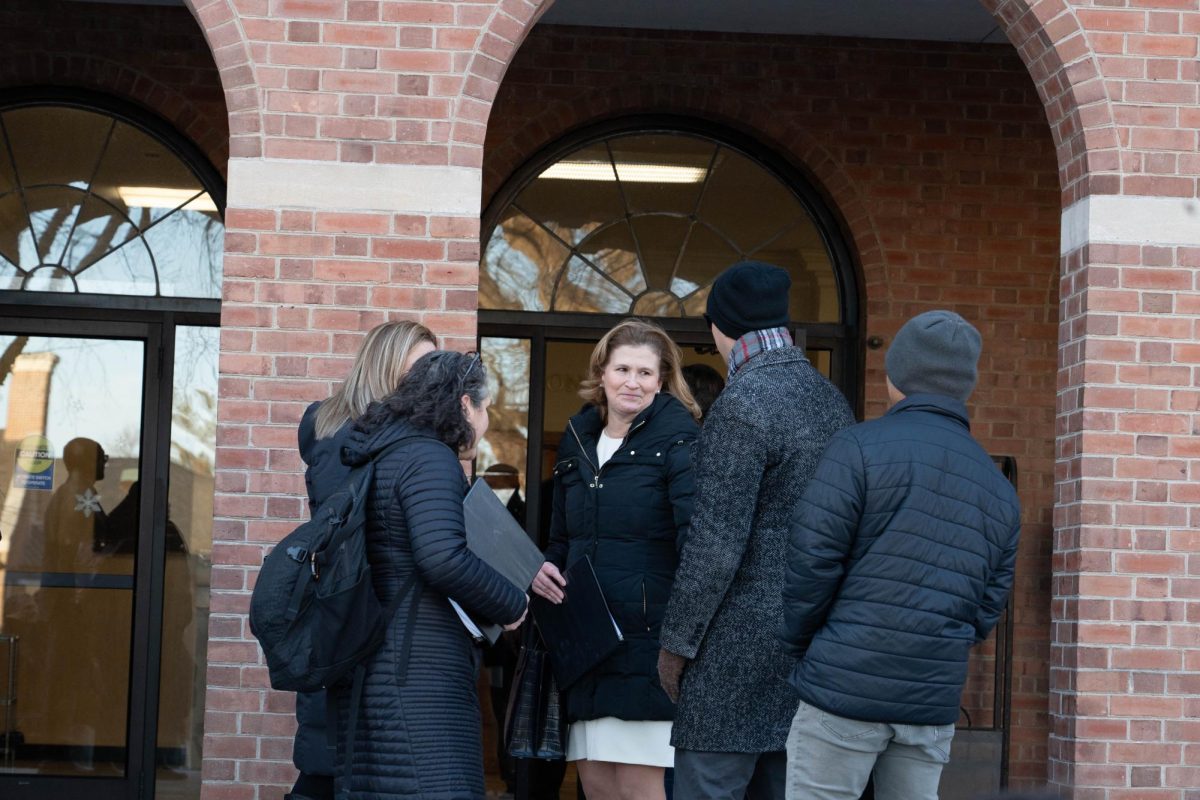Lafayette College President Nicole Hurd was the subject of a successful faculty no-confidence vote on Tuesday, a first in the college’s nearly 200-year history.
The vote passed 102-86 with six abstentions, according to the Clerk of the Faculty Joshua Smith. While symbolic, the vote could spell uncertainty for the future of Hurd’s presidency.
“It doesn’t feel like a win when it’s something so serious for the College,” Caroline Lee, the anthropology and sociology department head and one of the motion’s 10 original authors, wrote in an email.
Hurd declined to comment.
A study from The Journal of Research on the College President found that the resignation or expulsion of a college president quickly followed a slim majority of faculty-led successful no-confidence votes. Another analysis from the Chronicle of Higher Education claims that, regardless of the outcome, 51% of college presidents leave their positions within a year of facing the vote.
Lafayette’s Board of Trustees — who the faculty called upon to address what it called a “leadership crisis” — is the only body able to remove Hurd from office. However, removal is not the only possible outcome and the board is not obligated to pursue any action.
Board of Trustees Chairman Bob Sell ‘84 wrote in an email that the trustees will convene “to discuss the faculty meeting and its outcome” sometime this week, adding that they would publish a statement after the meeting.
“Lafayette College is fortunate to have faculty and staff who care deeply about the institution and its future success,” college spokesman Scott Morse wrote in a statement, adding that Hurd has “always valued constructive dialogue with faculty and staff.”
“She acknowledges the vote and pledges to continue working closely with the faculty to advance the academic mission of the College,” the statement continued.
Among the grievances in the 12-page no-confidence motion are that Hurd has “harmed the institution of Lafayette College” by deprioritizing its academic mission and excluding the faculty from decision-making.
“We don’t do it with anything other than regret and sorrow, because faculty love this institution,” said anthropology professor and motion signatory William Bissell before the vote was held. “We believe in it.”
Discussion of the no-confidence motion, which was cut short by a vote to move on, took up the majority of the two-hour faculty meeting.
“Participating in a no confidence vote is a heavy responsibility, and the faculty took it very seriously,” Angelika von Wahl, the chair of the international affairs department and another of the motion’s signatories, wrote in an email.
Government and law professor John Kincaid classified the dialogue as a “very vigorous debate.”
Smith, the clerk of the faculty, said that faculty attendance at the meeting was “one of the most significant turnouts” he had seen in his nearly 20 years at the college. Those attending the meeting passed by a student demonstration of over 150 student-athletes in support of Hurd.
Five faculty members spoke in favor of the motion and five faculty members, along with one dean, spoke against the motion, according to Smith.
He said that many of the arguments in favor of the motion were consistent with its original rationale and that arguments against it contended a lack of adequate evidence for claims within the motion and concern over the vote’s possible repercussions on morale, donations and enrollment.
“While I have high regard for my colleagues, all of them, including the authors of this motion, I voted no because I don’t believe that this is an effective way forward,” Spanish professor Michelle Geoffrion-Vinci said.
An anonymous art professor — who expressed worry about administrative reprisal for sharing their vote — said they entered the meeting intending to vote against the motion but were swayed by the debate, ultimately voting no-confidence. They cited that another colleague’s assertion during the discussion that the college has failed to properly respond to national events motivated their vote.
“She has some really excellent qualities,” the professor said of Hurd. “I think it’s just the core stuff is a problem and I think that’s the stuff you can’t overlook.”
Math professor Justin Corvino, who voted against the motion, said that when the faculty voted to close the discussion, he and several colleagues were still waiting in line to speak. He added that towards the end of the discussion, faculty who wished to speak were asked to shorten their remarks.
According to the Faculty Handbook, regular faculty meetings are intended to adjourn at 6 p.m. but can be extended by a vote.
Hurd did not make final comments after the motion was passed, according to Smith.
Several faculty members declined to comment on the motion or its passage.
Selma O’Malley ’26, Andreas Pelekis ‘26, Clara Witmer ‘27 and Makenna McCall ‘27 contributed reporting.
This article was originally published on Jan. 28. It was updated on Jan. 31.
This story was originally published on The Lafayette on January 31, 2025.







































